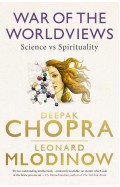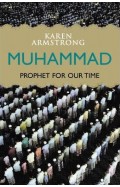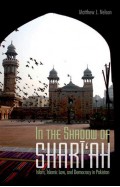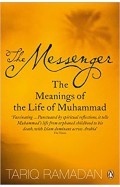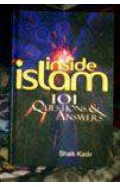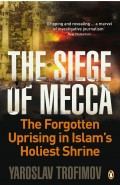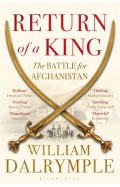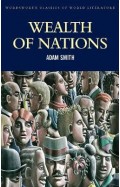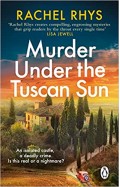Divine Might - Goddesses in Greek Myth
By: Natalie Haynes
-
Rs 3,595.50
- Rs 3,995.00
- 10%
You save Rs 399.50.
Due to constant currency fluctuation, prices are subject to change with or without notice.
In Divine Might Natalie Haynes, author of the bestselling Pandora’s Jar, returns to the world of Greek myth and this time she examines the role of the goddesses.
We meet Athene, who sprang fully formed from her father’s head: goddess of war and wisdom, guardian of Athens. We run with Artemis, goddess of hunting and protector of young girls (apart from those she decides she wants as a sacrifice). Here is Aphrodite, goddess of sex and desire – there is no deity more determined and able to make you miserable if you annoy her. And then there’s the queen of all the Olympian gods: Hera, Zeus’s long-suffering wife, whose jealousy of his dalliances with mortals, nymphs and goddesses lead her to wreak elaborate, vicious revenge on those who have wronged her.
We also meet Demeter, goddess of agriculture and mother of the kidnapped Persephone, we sing the immortal song of the Muses and we warm ourselves with Hestia, goddess of the hearth and sacrificial fire. The Furies carry flames of another kind – black fires of vengeance for those who incur their wrath.
These goddesses are as mighty, revered and destructive as their male counterparts. Isn’t it time we looked beyond the columns of a ruined temple to the awesome power within?
In Divine Might Natalie Haynes, author of the bestselling Pandora’s Jar, returns to the world of Greek myth and this time she examines the role of the goddesses.
We meet Athene, who sprang fully formed from her father’s head: goddess of war and wisdom, guardian of Athens. We run with Artemis, goddess of hunting and protector of young girls (apart from those she decides she wants as a sacrifice). Here is Aphrodite, goddess of sex and desire – there is no deity more determined and able to make you miserable if you annoy her. And then there’s the queen of all the Olympian gods: Hera, Zeus’s long-suffering wife, whose jealousy of his dalliances with mortals, nymphs and goddesses lead her to wreak elaborate, vicious revenge on those who have wronged her.
We also meet Demeter, goddess of agriculture and mother of the kidnapped Persephone, we sing the immortal song of the Muses and we warm ourselves with Hestia, goddess of the hearth and sacrificial fire. The Furies carry flames of another kind – black fires of vengeance for those who incur their wrath.
These goddesses are as mighty, revered and destructive as their male counterparts. Isn’t it time we looked beyond the columns of a ruined temple to the awesome power within?
Divine Might - Goddesses in Greek Myth
By: Natalie Haynes
Rs 3,595.50 Rs 3,995.00 Ex Tax :Rs 3,595.50
Divine Might - Goddesses in Greek Myth
By: Natalie Haynes
Rs 2,335.50 Rs 2,595.00 Ex Tax :Rs 2,335.50
Zubin Mehta: A Musical Journey (An Authorized Biography)
By: VOID - Bakhtiar K. Dadabhoy
Rs 892.50 Rs 1,050.00 Ex Tax :Rs 892.50
The Quest For Meaning: Developing A Philosophy Of Pluralism
By: Tariq Ramadan
Rs 1,185.75 Rs 1,395.00 Ex Tax :Rs 1,185.75
War of the Worldviews: Science vs Spirituality
By: Dr Deepak Chopra
Rs 797.50 Rs 1,595.00 Ex Tax :Rs 797.50
In the Shadow of Shari'ah: Islam, Islamic Law and Democracy in Pakistan
By: Matthew J Nelson
Rs 2,347.50 Rs 4,695.00 Ex Tax :Rs 2,347.50
The Messenger: The Meanings of the Life of Muhammad
By: Tariq Ramadan
Rs 2,236.00 Rs 2,795.00 Ex Tax :Rs 2,236.00
No similar books from this author available at the moment.
Return of a King The Battle for Afghanistan
By: William Dalrymple
Rs 2,965.50 Rs 3,295.00 Ex Tax :Rs 2,965.50
Spoon-Fed - Why almost everything we've been told about food is wrong
By: Tim Spector
Rs 2,335.50 Rs 2,595.00 Ex Tax :Rs 2,335.50
This Book Will Make You Feel Better - 100 Pages to Boost Your Mood
By: Penguin Life
Rs 2,800.75 Rs 3,295.00 Ex Tax :Rs 2,800.75
Where Good Ideas Come from - The Natural History of Innovation
By: Steven Johnson
Rs 3,505.50 Rs 3,895.00 Ex Tax :Rs 3,505.50
Party of One: The Rise of Xi Jinping and China's Superpower Future
By: Chun Han Wong
Rs 3,595.50 Rs 3,995.00 Ex Tax :Rs 3,595.50
Patterns of Portugal - A Journey Through Colors, History, Tiles, and Architecture
By: Christine Chitnis
Rs 5,575.50 Rs 6,195.00 Ex Tax :Rs 5,575.50
How to Crochet Animals: Ocean - 25 mini menagerie patterns
By: Kerry Lord
Rs 2,965.50 Rs 3,295.00 Ex Tax :Rs 2,965.50
Wealth of Nations (Classics of World Literature)
By: Adam Smith
Rs 2,065.50 Rs 2,295.00 Ex Tax :Rs 2,065.50
Dot-to-Dot: Famous Landmarks: Join the Dots to Reveal the World's Most Fascinating Places
By: Glyn Bridgewater
Rs 1,355.75 Rs 1,595.00 Ex Tax :Rs 1,355.75
Zubin Mehta: A Musical Journey (An Authorized Biography)
By: VOID - Bakhtiar K. Dadabhoy
Rs 892.50 Rs 1,050.00 Ex Tax :Rs 892.50
Divine Might - Goddesses in Greek Myth
By: Natalie Haynes
Rs 3,595.50 Rs 3,995.00 Ex Tax :Rs 3,595.50
Divine Might - Goddesses in Greek Myth
By: Natalie Haynes
Rs 2,335.50 Rs 2,595.00 Ex Tax :Rs 2,335.50












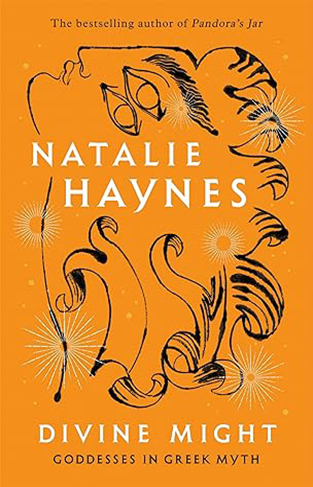
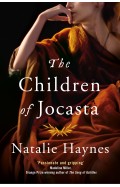

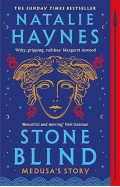
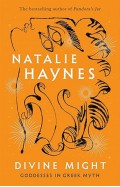
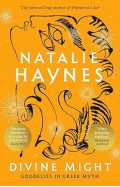
-120x187.jpg?q6)






